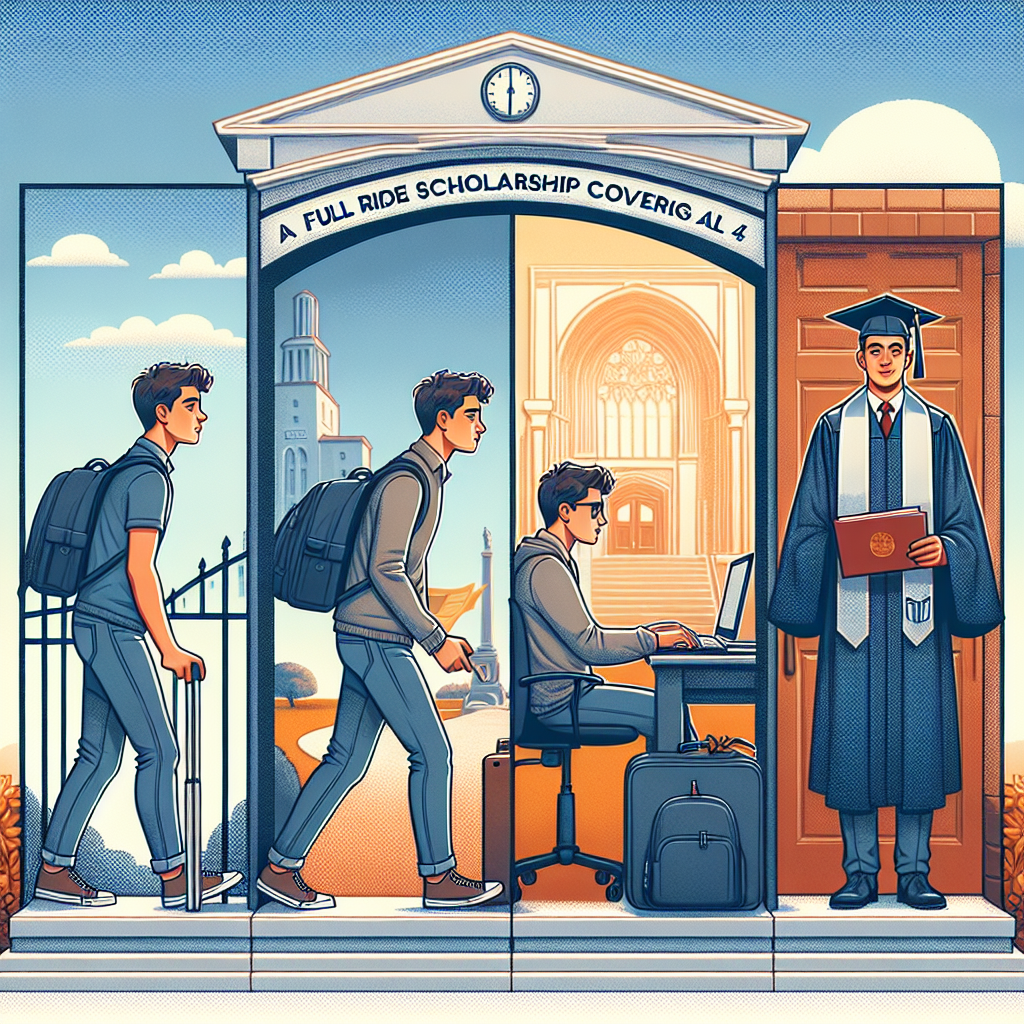Everything You Need To Know About Does A Full Ride Scholarship Cover All 4 Years can help students and families cut through the confusion around what “full ride” actually means. The term sounds definitive, but coverage varies widely by the sponsor, institution, and the student’s circumstances. This guide explains typical inclusions and exclusions, renewal terms, and steps to make the most of generous awards.
Do full-ride scholarships typically cover all four years?
Short answer: sometimes. A full-ride scholarship often implies tuition, fees, room, and board, but the specifics differ. Some awards guarantee four years of support provided the student meets renewal requirements (GPA, credit load, conduct). Others only promise a set dollar amount per year, which may not keep pace with rising costs or additional fees. Always review the scholarship agreement for duration and conditions.
What “full ride” commonly includes
Common inclusions in many full-ride packages are:
- Tuition and mandatory university fees.
- Housing (on-campus room) and meal plans or a stipend for food.
- Basic course materials or a book stipend in some cases.
- Sometimes a small allowance for personal expenses or an academic stipend.
What may not be covered
Even with a full-ride label, several expenses are often excluded or only partially covered:
- Transportation costs (commuting, flights for breaks).
- Special program fees (lab fees, studio fees, study abroad premiums).
- Health insurance or medical expenses, unless explicitly stated.
- Cost overruns if tuition increases beyond the package amount and the award is fixed rather than percentage-based.
How renewal and eligibility rules affect four-year coverage
Many scholarships are renewable annually but require the recipient to maintain certain academic standards or full-time enrollment. Common renewal conditions include:
- Minimum GPA (e.g., 2.5–3.5).
- Completion of a specified number of credit hours each academic year.
- Behavioral or community service commitments for organizational awards.
If a student falls short of these requirements, the award may be reduced or lost, impacting whether it truly covers all four years.
Types of full-ride awards to know
Different sponsors structure full rides differently:
- Institutional scholarships: Colleges often offer full-tuition or full-ride packages to attract top students; check whether they cover room and board.
- Private foundations and merit organizations: These may be more flexible with allowances but stricter on renewal conditions.
- State-funded or service scholarships: Some state programs fund residents for in-state tuition and may include additional stipends, sometimes conditional on post-graduation service.
Maximizing a full-ride scholarship across all years
To ensure continuity of support and avoid unexpected gaps:
- Read the award letter and scholarship contract carefully; note exactly what is covered and for how long.
- Ask the financial aid office whether the scholarship is inflation-adjusted or capped at a fixed sum.
- Keep documentation of renewal criteria and set academic goals to meet them early.
- Look for complementary resources (work-study, departmental grants, or emergency funds) to cover excluded costs.
For students in specialized fields, such as the arts, additional fees like studio supplies can be significant; a focused resource on scholarships for creative majors can help identify awards tailored to those needs: scholarships for art students.
What research and resources can confirm coverage details?
School financial aid offices are the primary source for exact coverage information, but national data can also provide context on average tuition and fees so you can estimate gaps. For objective data on tuition and fees trends, see the National Center for Education Statistics analysis on college costs:
NCES data on college tuition and fees
Quick checklist before accepting a full-ride
- Confirm the award’s duration (one year vs. four years vs. renewable).
- Verify exactly which expenses are covered.
- Understand renewal criteria and timeline for appeals.
- Ask about contingencies for tuition increases or program-specific costs.
FAQ
Does a full-ride always renew automatically for all four undergraduate years?
No. Many scholarships require annual renewal based on GPA, enrollment status, or other conditions. Automatic renewal without conditions is rare.
Can a full-ride scholarship be reduced if tuition rises?
Yes. If the award is a fixed dollar amount rather than a percentage of tuition, students may be responsible for any increase. Always check whether the scholarship is indexed to tuition changes.
What if my scholarship doesn’t cover a required program fee?
Contact your financial aid office. They may offer grants, emergency aid, or payment plans to bridge shortfalls. Also explore departmental scholarships or external awards that target program-specific expenses.



